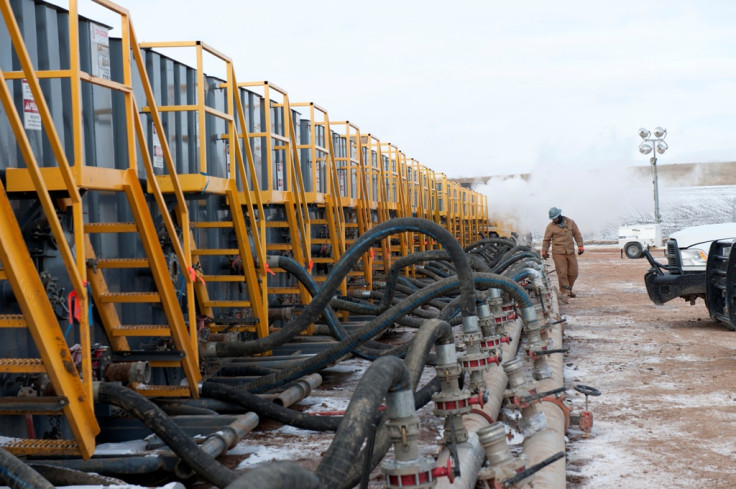Fracking to forge ahead in UK but not without rules say Tories

The Tories are pushing ahead with Britain's fracking industry after a ruling on Monday 29 June in Lancashire and another in New York State banning the controversial gas extraction technology.
But there must be rules, said Conservative Kevin Hollinrake, MP for Thirsk and Malton, at Westminster on 30 June. "The beauty of our countryside is North Yorkshire's main asset," he told his fellow MPs. "We don't want the fracked landscape of North Dakota to become a reality here.
"There's a commercial pressure to exploit shale gas and that's why we need to get this right." Strict rules around the technology and how it is used are the answer, he added.
Hollinrake suggested a buffer zone of six miles between fracking sites and an industry scheme that will step up to pay for any damage to the environment and communities, as well as "truly independent monitoring".
He also called for a "clear solution on water recycling" used in the fracking gas extraction process, known technically as hydraulic fracturing. The process uses water mixed with sand and chemicals pumped at high pressure into shale deposits underground to push out natural gas trapped between the flaky rock.
"It is critical that we keep the public informed," said Hollinrake, about both the benefits and the environmental impacts. "We need to reassure the public that we will stop if its significantly affecting lives and livelihoods."
This means taking "one step at a time to make sure that people see the process and facts have been carefully monitored and reviewed", he added.
Lancashire says no to fracking
On 29 June, Lancashire County Council voted nine to three, with two abstentions, to reject a fracking project proposed by oil and gas production company Cuadrilla in Little Plumpton, near Preston. The council said the four planned explorations wells would have an "unacceptable noise impact" and an "adverse urbanising effect on the landscape".
But others went further. The same day New York State announced that after seven years of study it would ban the fracking process entirely. "High-volume hydraulic fracturing poses significant adverse impacts to land, air, water, natural resources and potential significant public health impacts that cannot be adequately mitigated," Joe Martens, the state's Department of Environmental Conservation (DEC) Commissioner, said in a statement.
The decision was based on a 1,448-page report prepared over six years by the environmental authority and released in April with significant contributions by the state's Department of Health. The move came as a surprise since the US has more than 32,000 fracked wells, according to numbers produced by Fractracker, and the technology repositioned the US energy industry at the head of the pack.
On the other hand, a 2012 study published by the UK Department of Energy & Climate Change that consulted the British Geological Survey, the oil and gas industry and environmental groups found fracking "did not pose a significant risk to water supplies". It said if the wells were constructed properly, fracking was no more dangerous than traditional drilling.
Despite the UK movement against fracking, and studies calling the process's safety into question, "the industry is betting that the support of George Osborne and the Conservative government will continue unabated", said Brendan Montague, editor of the website DeSmog UK.
These companies have taken a considerable gamble that they can tap shale gas deposits so large that they can deliver the profits expected by their investors
Montague said the defeat of the fracking industry in Lancashire "could prove catastrophic". When Lord Browne stepped down from Cuadrilla earlier in 2015, it "may have unintentionally sent a signal to the market", he said.
"The fall in international prices for more traditional fossil fuels and the upcoming international conference on climate change in Paris" have also made shale plays in the UK less attractive, he added.
Whether the industry is able to make a profit in the UK is another question. "These companies have taken a considerable gamble that they can tap shale gas deposits so large that they can deliver the profits expected by their investors," Montague said. They will need to do this while compensating for the environmental risks and shouldering the cost of drilling. So far only one well for shale gas has ever been completed.
Montague added he expects Chancellor George Osborne to continue to push for the industry to be developed after a private letter leaked in which he told ministers to do everything they could to support the industry. "He has staked his political reputation on its success," he explained.
Still, the requirements Hollinrake proposed are "very sensible" Montague continued. But "we would have to forget almost everything we have learned in the past century and a half about the coal, oil and gas industries - both conventional and otherwise - in order to have any confidence that they will be met".
© Copyright IBTimes 2025. All rights reserved.






















